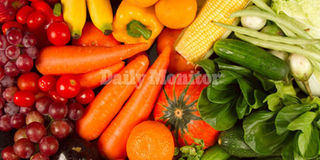Open letter to African governments

The author says sometimes the human experience falls far short of satisfying even the most basic needs. PHOTO/FILE.
What you need to know:
- Dr Agnes Kalibata says: The pandemic has provided a taste of a future at the limits of existence, where people are bereft, governments are stymied and economies wither.
In 2020, the entire world knew what it was to be hungry. Millions of people went without enough to eat, with the most desperate now facing famine.
At the same time, isolation took on a new meaning, in which the lonely and most remote were deprived of human contact when they most needed it, while the many victims of Covid-19 were starved of air. For all of us, the human experience fell far short of satisfying even the most basic needs.
The pandemic has provided a taste of a future at the limits of existence, where people are bereft, governments are stymied and economies wither. But it has also fuelled by an unprecedented global appetite for change to prevent this from becoming our long-term reality.
For all the obstacles and challenges we face in the weeks and months ahead, I start the year 2021 with a tremendous sense of optimism and hope that the growling in our stomachs and the yearning in our hearts can become the collective roar of defiance, of determination and of revolution to make this year better than the previous one, and the future brighter than the past.
It starts with food, the most primal form of sustenance. It is food that determines the health and prospects of 1.35 billion Africans and counting. It is food that employs more than half a billion in African agriculture alone and offers the promise of economic growth and development. And it is food that impacts our very ecosystems, down to the air we breath, the water we drink, and the climate we enjoy, come rain or shine.
Even before the pandemic, 2021 was destined to be a “super-year” for food, a year in which food production, consumption and disposal finally received the requisite global attention as the UN convenes the world’s first Food Systems Summit.
But with two years worth of progress now compressed into the next 12 months, 2021 takes on a renewed significance.
After a year of global paralysis, caused by the shock of Covid-19, we must channel our anxieties, our fear, our hunger, and most of all our energies into action, and wake up to the fact that by transforming food systems to be healthier, more sustainable and inclusive, we can recover from the pandemic and limit the impact of future crises.
The change we need will require all of us to think and act differently because every one of us has a stake and a role in functioning food systems.
But now more than ever, we must look to our national leaders to chart the way forward by uniting farmers, producers, scientists, hauliers, grocers, and consumers, listening to their difficulties and insights, and pledging to improve each aspect of the food system for the betterment of all.
Policymakers must listen to Africa’s 450 million smallholders as custodians of the resources that produce so much of our food, and align their needs and challenges with the perspectives of environmentalists and entrepreneurs, chefs and restaurant owners, doctors and nutritionists to develop national commitments.
We enter 2021 with wind in our sails. More than 50 countries have joined the African Union in engaging with the Food Systems Summit and its five priority pillars, or Action Tracks, which cut across nutrition, poverty, climate change, resilience and sustainability.
Dr Agnes Kalibata, @BergmarkPontus




